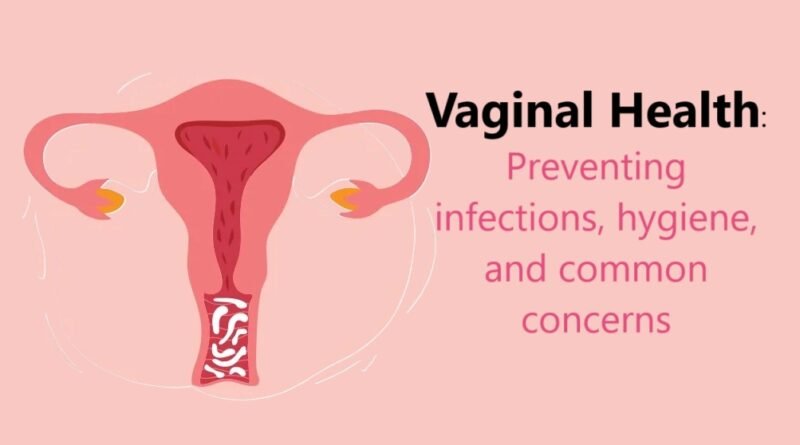Vaginal Health: Preventing Infections, Hygiene, and Common Concerns
Vaginal health is an essential component of overall well-being for individuals with a vagina. It’s a topic that often gets overlooked or misunderstood due to cultural taboos, misinformation, and lack of open discussion. However, understanding how to maintain vaginal health is crucial for preventing infections, addressing hygiene, and managing common concerns. In this article, we delve into practical tips and expert-backed advice to help you take charge of your vaginal health.
Understanding Vaginal Health
The vagina is a self-cleaning organ with its own ecosystem of beneficial bacteria and a slightly acidic pH that helps protect against infections. Disrupting this natural balance can lead to issues such as infections, irritation, or discomfort.
Maintaining good vaginal health is not just about hygiene; it’s about understanding how your body works and making informed choices to support its natural processes.
Preventing Vaginal Infections
Vaginal infections, such as yeast infections and bacterial vaginosis (BV), are common but preventable in many cases. Here are some steps to minimize your risk:
1. Practice Good Hygiene
- Wash Gently: Use lukewarm water and mild, unscented soap to clean the vulva (the external genital area). Avoid douching, as it can disrupt the vagina’s natural balance.
- Wipe Properly: Always wipe from front to back after using the toilet to prevent the spread of bacteria from the anus to the vagina.
2. Wear Breathable Clothing
- Opt for cotton underwear and avoid tight-fitting clothing for long periods, as they can trap moisture and create a breeding ground for bacteria and fungi.
3. Manage Menstrual Hygiene
- Change tampons, pads, or menstrual cups regularly to prevent bacterial growth.
- Consider using unscented menstrual products to reduce the risk of irritation.
4. Be Cautious with Intimate Products
- Avoid scented products, including soaps, sprays, and wipes, as they can cause irritation and disrupt the vaginal flora.
5. Practice Safe Intimacy
- Use condoms or dental dams to reduce the risk of sexually transmitted infections (STIs).
- Get regular STI screenings, especially if you have multiple partners.
Maintaining Hygiene Without Overdoing It
Over-washing, overusing products, or being overly concerned about odor can do more harm than good. The key is to maintain a balance and avoid unnecessary interventions.
1. Understand Normal Vaginal Odor
- It’s normal for the vagina to have a mild, slightly musky odor. If the smell changes drastically or becomes unpleasant, it might indicate an infection.
2. Avoid Douching
- Douching can upset the natural bacterial balance and increase the risk of infections like bacterial vaginosis and yeast infections.
3. Stay Hydrated and Maintain a Healthy Diet
- Drinking water and eating a balanced diet rich in fruits, vegetables, and probiotics can support vaginal health.
Addressing Common Concerns
1. Yeast Infections
Symptoms: Itching, redness, and a thick, white discharge resembling cottage cheese.
- Treatment: Over-the-counter antifungal creams or prescription medications. Consult a healthcare provider if symptoms persist.
2. Bacterial Vaginosis (BV)
Symptoms: A thin, grayish discharge with a strong fishy odor.
- Treatment: Prescription antibiotics are usually required to treat BV.
3. Urinary Tract Infections (UTIs)
Symptoms: Burning sensation during urination, frequent urge to urinate, and cloudy or strong-smelling urine.
- Prevention: Stay hydrated, urinate after sexual activity, and avoid holding in urine for long periods.
4. Vaginal Dryness
Causes: Hormonal changes, menopause, certain medications, or stress.
- Solutions: Use water-based lubricants or consult your healthcare provider about estrogen creams.
5. Unusual Discharge
- Normal discharge varies in consistency and color depending on your menstrual cycle. However, green, yellow, or foul-smelling discharge may indicate an infection and should be evaluated by a healthcare professional.
When to See a Healthcare Provider
It’s essential to seek medical advice if you experience:
- Persistent itching, burning, or swelling.
- Unusual or foul-smelling discharge.
- Pain during intercourse.
- Frequent or recurrent infections.
Regular gynecological check-ups can help identify and address potential issues early.
Final Thoughts
Caring for your vaginal health is an ongoing process that involves understanding your body, making informed choices, and seeking professional advice when necessary. By following these guidelines, you can reduce your risk of infections, maintain good hygiene, and address common concerns with confidence. Remember, open conversations about vaginal health are vital to breaking down stigma and empowering individuals to prioritize their well-being.
Disclaimer: This article is for informational purposes only and should not be used as a substitute for professional medical advice, diagnosis, or treatment. Always consult a qualified healthcare provider with any questions or concerns regarding your health or a medical condition.

